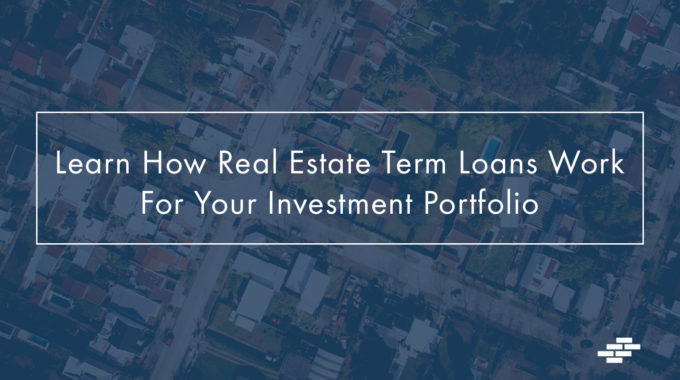Learn How Real Estate Term Loans Work For Your Investment Portfolio

By Tim Leber, Relationship Manager
Buying real estate should not be an intimidating endeavor, especially when you are buying in an asset class most people are already familiar with; the single family home. As a new investor with capital set aside for purchasing investment properties you should not fear the uncertainty of pulling the trigger on a rental loan that will be entirely covered by the income on your investment property.
How to most effectively, but conservatively plan for your commercial loan:
What kind of loan might be the right fit for a residential income property investor? If you’re looking for just one or two SFRs, there is always a conventional GRE (government sponsored entity) loan that will be the cheapest option in terms of interest rate for a new investor to utilize. Conventional mortgages usually entail a fully amortizing loan term, meaning that at the conclusion of the term, you will have paid all the principal and interest associated with the loan. These loans are traditionally based on a borrowers income and credit as a means of their ability to support the debt service on the properties they are purchasing with financing. The borrower needs to personally be able to support the principal and interest on the loans they are taking out.
But what happens when your debt to income ratio becomes too high for lenders to consider you for a traditional residential mortgage? As a savvy investor, you will need to find a true commercial loan product that fits your needs. Commercial loans placed on residential properties are traditionally based entirely on the net operating income for the assets. There are different types of lenders in the space that will be better suited for different types of investors.
The typical option may be to go to a regional bank or local credit union. These loans are good for small-balance loans where the borrower is looking for a low leverage cash-out (typically below about 65%) and are comfortable signing a full-recourse loan. Banks are a good route, but will often require a lengthy underwrite and require you to maintain your operating accounts for the properties with the bank so they can collect the fees associated with the loan.
An alternative route to banks are private money lenders. Often times, small-scale private money is considered hard money, and can come with high interest rates and expensive upfront costs. This type of loan is pricey, but if you are struggling with credit, income, or timing issues, this product can be the difference between winning the bid or losing out on a property.
There are also private money lender offering competitive terms on portfolios of rental properties.
These types of loans are the most cost effective for borrowers looking to:
1: Pool together more than once property into a large balance portfolio cross-collateralized by all the assets
2: Take out a loan that uses the income of the properties to fully cover the debt service.
3: Achieve max leverage non-recourse loan at competitive interest rates
Which loan is right for me?
Choosing the best type of loan for your portfolio often times will take time, and ultimately will come down to your investment strategy long term as well as your credit score and background. Making sure you are going to multiple lenders will determine how competitive of terms you will be achieving. Asking a financial professional can be helpful, but make sure to vet brokers and lenders by asking about some previous loans they have worked on to get a technical understanding.”
Looking to explore your financing options? CoreVest can help. We provide attractive long-term debt products for stabilized rental portfolios, as well as credit lines for new acquisitions. For more information about how CoreVest can help grow your rental and rehab business, please call us 844.223.2231 or email [email protected].